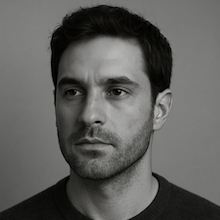
On Friday, U.S. District Judge Reed O'Connor announced that he will convene an August 28 hearing in Fort Worth, Texas, to review a proposed plea agreement between Boeing and the U.S. Department of Justice (DOJ) concerning criminal charges linked to two fatal Boeing 737 MAX crashes in 2018 and 2019 that resulted in the deaths of 346 people. The scheduled hearing follows objections from several relatives of crash victims who argue the deal is neither enforceable nor serves the public interest.
The agreement, negotiated by the DOJ and Boeing, would allow the planemaker to plead guilty to a criminal fraud charge for misleading federal regulators about a key flight control system implicated in both crashes—Lion Air Flight 610 in Indonesia in October 2018, and Ethiopian Airlines Flight 302 in March 2019. The system, known as the Maneuvering Characteristics Augmentation System (MCAS), was later found to have repeatedly malfunctioned, contributing to the crashes. The plea deal would allow Boeing to avoid prosecution and ongoing oversight by an independent monitor for three years, a detail that has sparked further criticism from victim families.
As first reported by Reuters and Yahoo Finance, the DOJ has argued that only the executive branch has the authority to pursue or terminate prosecutions, urging the court to dismiss the objections filed by the families and endorse the proposed agreement. The DOJ went so far as to declare that it would decline to pursue the criminal case even if the court were to reject the deal. In turn, certain families have called for the appointment of a special prosecutor should the agreement be rejected.
Under the terms of the deal, Boeing would pay a total of $1.1 billion in penalties. This sum includes a $243.6 million fine, a $444.5 million allocation to a crash victims compensation fund—divided equally among families affected by the two crashes—and over $455 million invested to improve the company’s compliance, safety, and quality controls. These payments supplement several billion dollars already paid out in civil settlements to most of the affected families.
Despite these financial penalties, some victims' relatives maintain that the agreement is insufficient, noting it enables Boeing to evade independent monitoring. They cite Judge O'Connor’s prior assessment that the crime "may properly be considered the deadliest corporate crime in U.S. history." According to Reuters, the vast majority of families have reached civil settlements with Boeing, but the question of criminal liability remains a point of contention.
The August 28 hearing will offer an opportunity for lawyers and other interested parties—including representatives of the crash victims’ families—to present their arguments to the court. Judge O'Connor’s decision may ultimately determine whether Boeing moves forward under the plea agreement, closes the criminal case, or faces the prospect of further legal proceedings.



